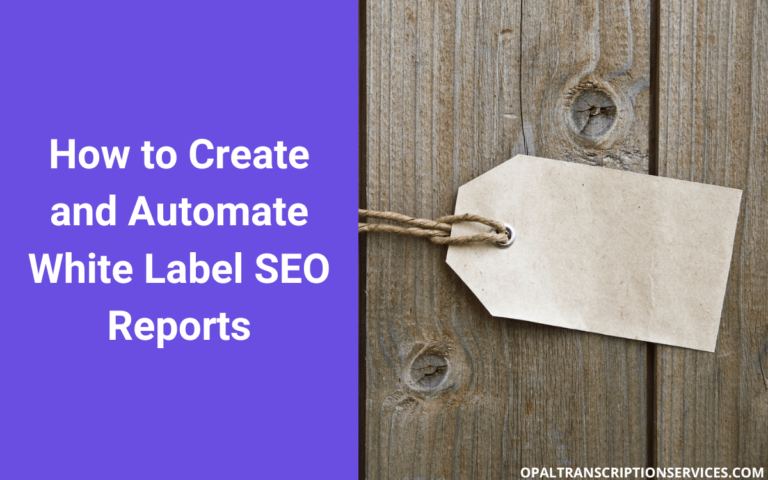Does SEO Require Coding?
If you’re considering starting an online business or launching a career in digital marketing, then you might be asking yourself: Does SEO require coding? And is SEO a technical skill?
The short answer: No, you do not need to learn coding to do SEO.
And although SEO can be a technical skill, it doesn’t have to be.
Even if you have no tech savvy, you can achieve almost any SEO task with the help of the right tool. Failing that, you can always hire a developer at an affordable cost on sites like Upwork and Fiverr to handle one-off technical tasks that you don’t have the time or inclination to figure out yourself.
The longer answer: Although you don’t need to know coding to be successful at SEO, it can certainly help make your job faster, easier, and, in some cases, less expensive.
This is because coding comes into so many aspects of SEO, including many of Google’s 200+ ranking factors. For one thing, Google parses your website’s code to understand the content and determine how to rank it. In addition, problems with the underlying code can result in crawling and indexing errors as well as website performance issues.
In this post, we’ll look at the types of coding that impact SEO and the benefits of learning code as an SEO specialist. But if learning how to code doesn’t interest you, never fear: We’ll also cover no-tech workarounds for most critical SEO tasks, so you’ll never have to touch a line of code if you don’t want to. By taking this route, you can learn SEO in just a few weeks or months.
Let’s get straight into it, starting with a brief introduction to SEO and where exactly code comes into the picture.
What is SEO?
SEO, short for search engine optimization, is a digital marketing strategy that involves improving a website’s position on Google and other search engines, resulting in increased traffic and sales.
SEO specialists achieve this goal through a wide variety of activities that aim to influence search engine algorithms. Google’s algorithm, for instance, has over 200 known ranking factors that come into play.
Put in simplest terms, there are three primary categories of SEO activities:
On-page
This includes any optimizations you make to your website content, such as landing pages and blog posts, to influence Google to rank it higher – for example, including your target keywords in strategic places throughout the HTML markup, such as header and title tags.
Off-page
This includes actions that you take outside of your own website to influence its visibility in the organic search results. Examples include doing guest post outreach to generate links from other websites to your own website, thus increasing your site’s domain authority and boosting its rankings at the page or domain level.
Technical
Like on-page SEO, technical SEO is done on your own website. However, rather than focusing on content, it focuses on areas of your site that directly impact Google’s ability to index and crawl your site – for example, site architecture and page speed, mobile optimization, robots.txt, XML sitemaps, 301 redirects, duplicate content, and schema markup.
Although coding affects all three of the above areas to at least some degree, you’ll encounter code most often in on-page and technical SEO.
Technical skills required for SEO
The following is a list of coding languages and some other technical skills and concepts that are commonly applied to SEO. However, remember that today most of these processes have non-technical workarounds, such as plugins and other tools, that make them accessible to non-coders. In other words, learning SEO today isn’t as hard as you might think.
HTML
HTML is the standard markup language for webpages. HTML tags help web browsers understand how to render a page, and they provide Google and other search engines with valuable context about your content. On-page optimization involves the placement of target keywords throughout the HTML elements on a webpage. In additional, knowledge of HTML standards aligns with SEO coding best practices.
CSS
Whereas HTML is concerned with the underlying structure, hierarchy, and meaning of elements on a webpage, CSS is concerned with the visual style or presentation of those elements. Although CSS isn’t vital to on-page optimization in the same way that HTML is, it can still be important in terms of creating a better user experience – an oft-overlooked aspect of SEO.
JavaScript
JavaScript is a language for creating dynamic content on webpages. Knowledge of JavaScript can be useful for a variety of SEO-related tasks, such as installing Google Analytics tracking snippets, improving page speed, and troubleshooting issues with the code on a webpage.
PHP
PHP is a language that is widely used for web development. It’s also the primary language used by WordPress, the world’s most popular CMS, which powers 43% of all websites. Therefore, an understanding of PHP will give you the ability to troubleshoot WordPress themes and plugins or edit the functions.php file in WordPress to customize the functionality of your site.
Python
The Python programming language, while not required for most basic SEO tasks, can be used to automate advanced SEO activities such as crawling, web scraping, and data analysis.
Schema markup
Schema is a Google-supported language for representing structured data, an aspect of on-page SEO that further helps search engines understand your content. It can also improve a webpage’s clickthrough rate in the search results through the use of rich snippets, which are styled differently to stand out from regular search results.
XML sitemap creation
An XML sitemap is like an index of all the URLs on your website. It helps search engines crawl and index your content and understand the relationship between pages on your site. When you create or update an XML sitemap, you can submit it to Google through your Search Console.
.htaccess
The .htaccess file is a high-level configuration file for the Apache web server, which is used by most WordPress web hosts. In terms of SEO, .htaccess can be used to configure permalink structure, set up 301 redirects, enable browser caching, and redirect HTTP to HTTPS.
cPanel and DNS configuration
A working knowledge of cPanel and DNS records can be useful for certain SEO tasks. For example, to use Google products like Search Console and Google Analytics, you may be required to verify ownership of your website by adding a TXT record to your DNS settings.
How to do SEO without any technical skills
As we’ve seen in the list above, SEO overlaps with many different programming languages and other technical concepts. However, thanks to the plethora of DIY SEO tools and SEO WordPress plugins that are available today, almost all the tasks listed above can be accomplished with very little technical ability.
Here are just a few examples of tools and resources that bloggers, businesses, and marketers can use to do SEO without any coding or programming experience:
WordPress visual editor. Also known as the WordPress block editor or Gutenberg editor, the WordPress visual editor lets you construct and optimize elaborate webpages, including HTML tags, simply by pointing and clicking.
Drag-and-drop page builder plugins. Page builders give you ultimate control over the look and functionality of your website without having to know any code. Some popular page builder plugins for WordPress include Elementor, Beaver Builder, Divi, Brizy, and Kadence Blocks.
SEO plugins for WordPress. All-in-one SEO plugins are designed to walk non-tech-savvy users through fundamental SEO processes such as on-page optimization — for example, creating and optimizing URL slugs and title tags without any knowledge of HTML. The two most popular all-in-one SEO plugins for WordPress are Yoast and Rank Math. Other plugins let you achieve a specific SEO task, such as creating 301 redirects, improving page speed, or building internal links.
SEO software-as-a-service. There’s a huge market for subscription-based software that helps you with certain aspects of SEO — for instance, keyword research, rank tracking, link building outreach, white label SEO reporting, and local citation building. Some SEO software suites, such as SEMRush, help you with every aspect of search engine optimization, from on-page and technical SEO to off-page SEO, and even beyond into other areas of digital marketing (social media marketing and PPC, for example).
Freelance marketplaces. Freelancer websites like Upwork and Fiverr are great places to hire web developers for SEO tasks that require coding. For instance, on Fiverr you can hire experts for page speed optimization, .htaccess modifications, HTTPS migration, and more.
SEO coding tutorials. Even if you doubt your technical skills, you might be surprised at what you can achieve with a good SEO coding tutorial or course. Aside from YouTube, my favorite site for SEO courses is Udemy.
Does coding help SEO?
Yes, learning how to code has the following benefits and advantages when it comes to SEO:
Gain a competitive edge. With your knowledge of coding, you can stay on top of more advanced SEO strategies like site speed optimization and structured data markup, which your competitors might not be tapping into.
Work faster. Programming languages like Python can help you automate certain aspects of SEO so you can get more done in less time.
Troubleshoot website problems. With an understanding of web development, you can quickly fix problems such as a botched WordPress update or hacked website. You can also make advanced modifications to the look and functionality of your site without installing WordPress plugins, which take up valuable web server space and slow your site down.
Save money. As a web developer yourself, you won’t need to purchase premium WordPress plugins or other software or hire a web developer to take care of technical tasks.
Serve agency clients better. If you run an SEO agency, it can definitely help to have web development expertise so you don’t have to white label certain aspects of client fulfillment unless you really want to.
What HTML code do you need to know for SEO?
Some of most common SEO code for websites you’ll encounter during the process of on-page optimization includes the following HTML tags, elements, and attributes:
- Title tag (<title>Your Webpage’s Title</title>)
- Heading tags (<h1>Your Subtitle</h1>, <h2> Your Subtitle</h2>, <h3> Your Subtitle</h3>, etc.)
- Meta description (<meta name=”description” content=”Your webpage description.”>
- Image alt attribute (<img src=”your_img.jpg” alt=”your image description ” width=”500″ height=”600″>
- Nofollow links (<a href=”https://example.com” rel=”nofollow”>your link</a>)
- Canonical links (<link rel=”canonical” href=”https://example.com/your-webpage” />)
Is SEO easier than programming?
Yes, most people find SEO easier than programming in the sense that you can learn how to do SEO without any so-called technical skill. That said, a knowledge of coding languages such as HTML, CSS, JavaScript, PHP, and even Python can be useful when applied to search engine optimization.
Wrapping up
So, does SEO require coding? Yes and no.
Yes, because the underlying code that search engine robots use to parse webpages is fundamental to many aspects of SEO.
No, because whether you know how to code or not, you can still do SEO to a high standard with the help of a few strategic tools and workarounds. In fact, most SEOs fall into this latter category, so if that’s you, you can breathe a sigh of relief.
On the other hand, if you’re a web developer, you can enjoy the many advantages of knowing how to code when it comes to SEO.






